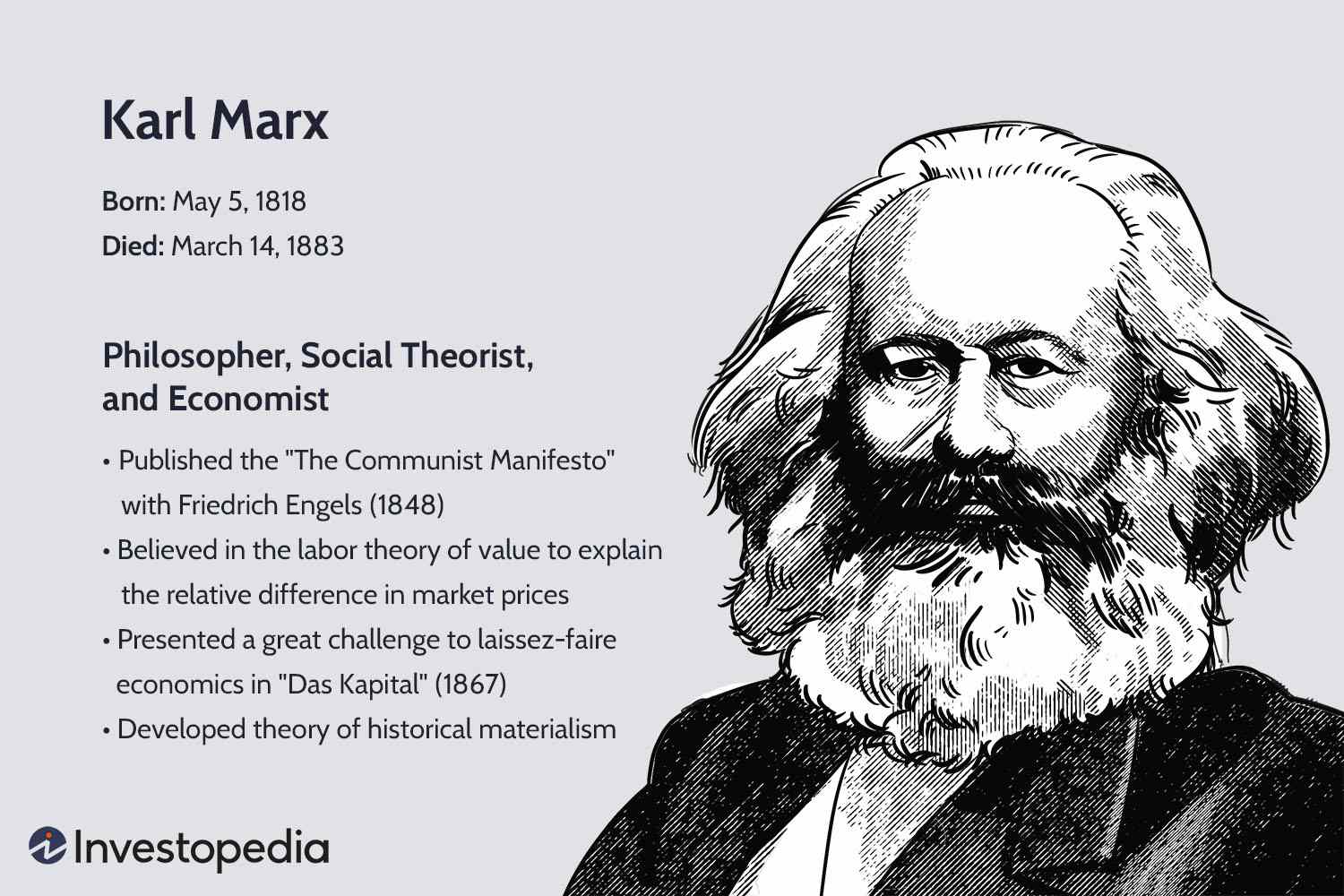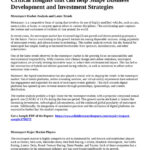In the mid-19th century, Karl Marx revolutionized economic thought with his theories on capitalism and socialism. His ideas continue to shape modern society and are the foundation for critical analysis of economic systems and social structures.

Credit: slideplayer.com
Introduction to Karl Marx
Karl Marx was a German philosopher, economist, and revolutionary socialist. Born in 1818, he dedicated his life to studying the economic and social dynamics of industrialized societies. His works, particularly “Das Kapital” and “The Communist Manifesto,” have had a profound influence on economic theory and political ideologies.
Marx’s Concept of Capitalism
Marx’s critique of capitalism focused on the exploitation of labor and the concentration of wealth in the hands of a few. He argued that in a capitalist system, the bourgeoisie, or the ruling class, reaped the benefits of labor while the proletariat, the working class, suffered from low wages and poor working conditions.
Marx believed that capitalism fueled inequalities and social injustice, leading to alienation and class struggle. His analysis of the inherent contradictions and flaws of capitalism provided the groundwork for understanding the dynamics of modern economies.
:max_bytes(150000):strip_icc()/marxism-final-6a8c13e1cbbf42658aa2c06266eb82d3.png)
Credit: www.investopedia.com
The Labor Theory of Value
One of Marx’s most significant economic theories is the labor theory of value. According to this theory, the value of a commodity is determined by the amount of labor required for its production. Marx argued that the capitalist system exploits labor by extracting surplus value from workers, leading to the creation of profits for capitalist owners at the expense of the laborers.
This concept remains relevant in contemporary discussions on fair wages, worker rights, and economic inequality. The idea that labor is the source of value challenges conventional economic beliefs and has sparked debates on the ethical dimensions of capitalist production.
The Transition to Socialism
Marx envisioned the transition from capitalism to socialism as a necessary step toward a classless society. He believed that the proletariat, through collective action and revolutionary change, would seize control of the means of production and establish a socialist system based on social ownership and equality.
While Marx’s vision of socialism has been interpreted and implemented in various ways, his advocacy for redistributing power and wealth has influenced social movements and political ideologies worldwide. The concepts of social justice and economic democracy find their roots in Marx’s call for a more equitable distribution of resources.
Marx’s Influence on Modern Society
Despite the criticisms and controversies surrounding Marx’s theories, his impact on modern society cannot be understated. His profound insights into the social and economic dynamics of capitalism continue to inform scholarly research, political discourse, and grassroots movements advocating for social change.
Marx’s analysis of capitalism’s tendencies towards economic crises, income inequality, and the alienation of labor remains relevant in understanding contemporary economic challenges. Moreover, his emphasis on the need for social and economic justice resonates with individuals and communities striving for a more equitable and sustainable future.
Frequently Asked Questions On Karl Marx’s Economic Theories
Who Was Karl Marx And What Were His Economic Theories?
Karl Marx was a renowned philosopher, economist, and social theorist who is best known for his groundbreaking economic theories. He believed that capitalism created social inequality and argued for a classless society.
What Were The Key Concepts Of Karl Marx’s Economic Theories?
Karl Marx’s economic theories were based on several key concepts. These include the labor theory of value, the concept of class struggle, and the idea that capitalism inevitably leads to its downfall.
How Did Karl Marx View Capitalism And Its Impact On Society?
Karl Marx viewed capitalism as a system that perpetuated social inequality. He believed that it exploited the working class and concentrated wealth in the hands of the bourgeoisie, leading to social conflict and instability.
What Is The Labor Theory Of Value Proposed By Karl Marx?
Karl Marx’s labor theory of value states that the value of a commodity is determined by the amount of socially necessary labor time required for its production. This theory challenges traditional economic theories of value.
Conclusion
Karl Marx’s economic theories have left an indelible mark on the study of economics and the analysis of societal structures. His critiques of capitalism, advocacy for labor rights, and vision for a more equitable society continue to inspire debates and movements for social change.
Guest Author Sakhawat-Shuvo wrote and edited this Article based on his best knowledge and understanding. These opinions and remarks are not endorsed or guaranteed by epichistoria.com or EpicHistoria. The Epic Historia does not guarantee this article’s content. Readers should verify and use their judgment before trusting the content. Also, the Images used in this Article are the copyright of their Respective Owners. Please use our Comment Box or Contact Us form to report this content. This information is not accountable for losses, injuries, or damages.

